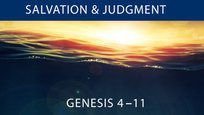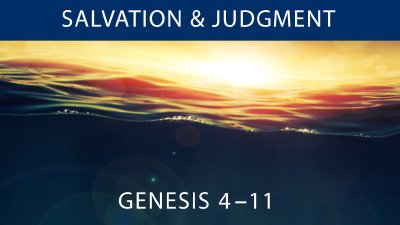Dear OBC Family,
For the last six months we have spent our time learning about God’s creation and covenant in Genesis 1–3. This Sunday, we enter a new sermon series on God's salvation and judgment which is seen in the earliest generations of humanity.
From Genesis 4–11, we find that that the mercy and justice of God, first seen in Genesis 3:14–19, is going to continue as it responds to Abel and Cain, Noah and the Nephilim, and Shem and the citizens of Shinar. To begin in Genesis 4:1–7, we will look at the contrasting sacrifices offered by Adam’s first two sons. In one son, faith led to an acceptable sacrifice, while in the other self-reliance invited God’s judgment. From this, we will learn much about God’s grace, God’s law, and God’s gospel.
To prepare for Sunday, therefore, read Genesis 4, Hebrews 11:1-6, and Hebrews 12:18-29. Both passages in the New Testament give us important truths about Cain and Abel, and make connections on how this story from long ago has ongoing relevance for us today.
Let’s pray that as we gather on Sunday, God will give us ears to hear his voice and turn from self-reliance to a faith that receives his salvation. As the Lord allows, I will look forward to seeing you Sunday.
For His Glory and your joy in Jesus,
Pastor David
-------------------------------------------------------------------------------------------------------
Discussion & Response Questions (Genesis 4:1 – 7)
What does Genesis 4 reveal to us about Adam? Eve? Cain and Abel? God?
What do we learn about humanity? What is the division?
What are the signs of difference between Cain and Abel? What does this have to do with their sacrifice?
What are the details of the sacrifice? Where was it offered? When? Why? How would they know what to do?
How do the specific details of the sacrificial system (see Leviticus) inform the way we think about Genesis 4?
Where do we see the grace of God? The law of God? The gospel of God?
Why is it best to see Genesis 4:7 as an invitation and provision of a sin offering?
What does this passage teach us about worshiping God? And living in fellowship with others?






